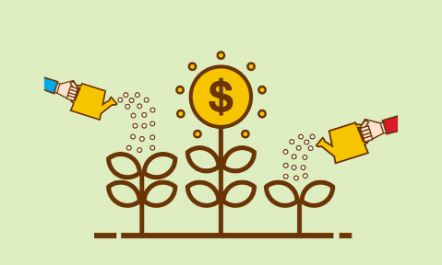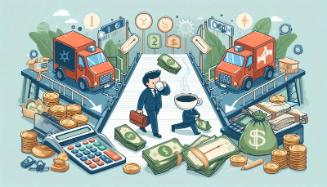Recession in 2025? Economic Indicators & Predictions
Fears of a global recession in 2025 are rising as economic uncertainty continues. Learn about key warning signs, potential risks, and how to prepare for financial stability in uncertain times.
Will there be a recession in 2025? Explore key economic indicators, expert predictions, and strategies to protect your finances.
Introduction – Are We Headed for a Recession?
The global economy faces increasing uncertainty in 2025, with many experts debating whether a recession is imminent. High inflation, rising interest rates, and geopolitical tensions have contributed to economic volatility. But what do the numbers say? Are we truly on the verge of a recession, or is the economy more resilient than it appears?
What is a Recession?
A recession is defined as a significant decline in economic activity lasting for several months, characterized by:
- Declining GDP (Gross Domestic Product) – A slowdown in economic growth.
- Rising Unemployment – Companies reduce hiring or lay off workers.
- Lower Consumer Spending – Households cut back on non-essential expenses.
- Weak Business Investments – Companies delay expansion due to uncertainty.
Economic Indicators Suggesting a Possible Recession
Experts use several key economic indicators to predict a recession:
- Inverted Yield Curve: Historically, when short-term interest rates are higher than long-term rates, a recession often follows.
- Stock Market Volatility: Major market fluctuations indicate investor uncertainty.
- Rising Interest Rates: The Federal Reserve and other central banks increase rates to control inflation, but higher borrowing costs slow down economic growth.
- Declining Manufacturing Output: A slowdown in industrial production signals weakening demand.
How Inflation is Contributing to Recession Fears
High inflation has been a persistent challenge for the global economy. While central banks aim to control rising prices through interest rate hikes, this can lead to reduced business investments and consumer spending—both of which increase recession risks. In 2025, inflation continues to impact:
- Food and Energy Prices: Rising costs make everyday essentials more expensive.
- Housing Market: High mortgage rates reduce home affordability and slow down property sales.
- Debt Burden: Consumers and businesses struggle with rising loan costs.
Global Economic Challenges Adding to Uncertainty
The possibility of a global recession isn’t just about inflation and interest rates. Other factors are also at play:
- Geopolitical Conflicts: Trade restrictions and political instability disrupt supply chains.
- Banking System Struggles: Financial institutions face risks from high interest rates and economic uncertainty.
- China’s Economic Slowdown: As one of the world’s largest economies, China’s economic performance has ripple effects globally.
Impact of a Recession on Everyday Life
A recession affects consumers, businesses, and investors in various ways:
- Job Market Instability: Unemployment rates may rise as companies cut costs.
- Investment Risks: Stock market declines can reduce retirement savings and portfolio values.
- Reduced Credit Availability: Banks may tighten lending standards, making it harder to get loans.
How to Prepare for a Potential Recession in 2025
Even if a recession isn’t guaranteed, it’s smart to take precautions. Here’s how individuals and businesses can safeguard their finances:
- Build an Emergency Fund: Aim for at least 6-12 months’ worth of living expenses.
- Reduce High-Interest Debt: Pay down credit card balances to avoid high interest rates.
- Diversify Investments: Spread risk across different asset classes, including bonds, commodities, and dividend stocks.
- Cut Unnecessary Expenses: Adjust your budget to prioritize essential spending.
Will a Recession Actually Happen? Expert Predictions
While some economists believe a mild recession is likely, others argue that the economy is resilient enough to avoid a major downturn. Factors that could help prevent a recession include:
- Strong Consumer Spending: If households continue spending, economic activity may stay stable.
- Technological Innovation: New advancements in AI, clean energy, and automation could drive growth.
- Government Stimulus Measures: Policymakers may introduce programs to support struggling sectors.
Staying Financially Secure in Uncertain Times
While the possibility of a recession in 2025 remains uncertain, staying informed and financially prepared is the best strategy. By monitoring economic trends, adjusting personal finances, and making smart investment choices, individuals and businesses can navigate potential challenges and secure their financial future.








